At every Symposium we try to add a few workshops to benefit attendees and local cave enthusiasts. These workshops are one of the ways that the 2021 NCKMS is helping to promote the International Year of Caves and Karst. Please read the descriptions carefully and be sure to thank your instructors for donating the extra time to offer these exciting programs!
- All Workshops take place on Monday, November 1, 2021.
- Time slots for workshops are:
- Morning: 8:00am (9:00am for Project Underground) – Noon
- Afternoon: 1:00pm – 5:00pm
- Full Day: 9:00am – 5:00pm with a lunch break from Noon – 1:00 PM
- All Workshops are open to the public. If participants have registered for the conference or have purchased a Monday Day Pass, there is no additional charge to participate in the workshops. There is a $10 fee to participate in workshops for participants who do not purchase a Day Pass or register for the conference.
- All Workshops have a maximum number of participants and are first-come, first-served. You may reserve a seat by registering for NCKMS 2021 using the Online Pre-Registration form or On-Site Registration the day of. Seating cannot be ensured without registration and will be based on availability.
- Lunch will not be provided by NCKMS on Monday. Please bring your own meal or make your own plans.
Workshop #1
Title: Project Underground
Description: 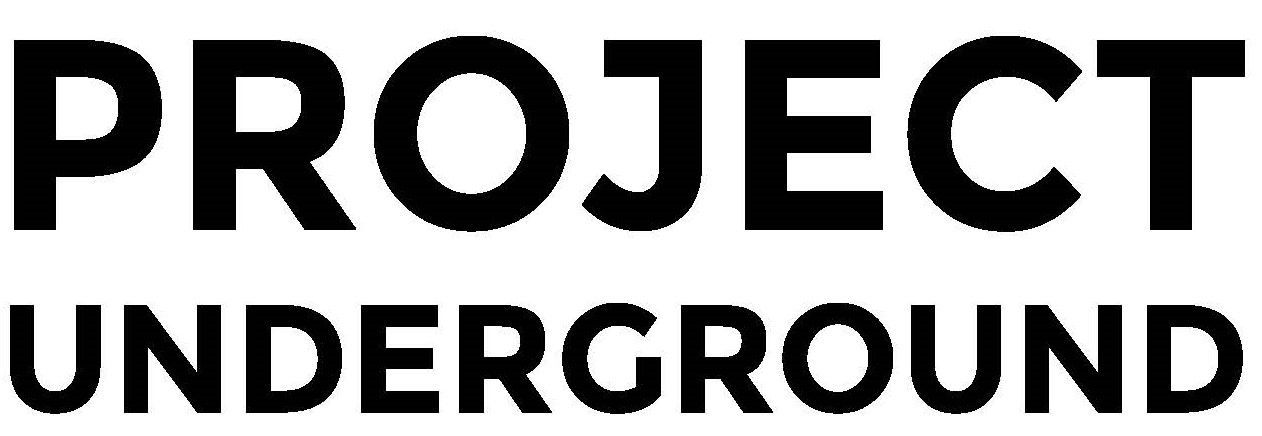 Project Underground is a K-12 environmental education curriculum and activity guide focused on caves and karst through the topics of geology, biology, and history. Learn methods to educate about the world beneath our feet in this workshop. Formal educators (classroom) and non-formal educators (nature centers, parks, camps) are encouraged to attend. Hands-On activities are required. This is not a passive lecture. The Project Underground Workshop has a $20 fee for a Project Underground activity book (to be collected on-site). Participants will receive a certificate at the end of the workshop.
Project Underground is a K-12 environmental education curriculum and activity guide focused on caves and karst through the topics of geology, biology, and history. Learn methods to educate about the world beneath our feet in this workshop. Formal educators (classroom) and non-formal educators (nature centers, parks, camps) are encouraged to attend. Hands-On activities are required. This is not a passive lecture. The Project Underground Workshop has a $20 fee for a Project Underground activity book (to be collected on-site). Participants will receive a certificate at the end of the workshop.
Instructor: Christine Walkey, Project Underground National Coordinator
Pre-requisites: none
Maximum number of participants: 20
Date: Monday, November 1
Time: 9:00 AM – Noon
Location: Holiday Inn San Marcos — Convention Center
Workshop #2
Title: The Survey and Inventory of Cave & Karst Features
Description: 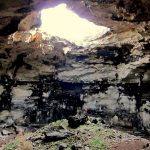 Baseline resource inventories and annual monitoring are two of the most important, if not the most important, activities in cave and karst management. They inform the “what and where” component of the cave and karst resource strategy and allow one to gauge the effectiveness of management decisions/actions through time. This short course will cover the design and execution of baseline inventories and annual monitoring activities as they apply to cave and karst resources. The course will also explore various methods to derive more understanding and visualization of cave data and surface/subsurface karst field data.
Baseline resource inventories and annual monitoring are two of the most important, if not the most important, activities in cave and karst management. They inform the “what and where” component of the cave and karst resource strategy and allow one to gauge the effectiveness of management decisions/actions through time. This short course will cover the design and execution of baseline inventories and annual monitoring activities as they apply to cave and karst resources. The course will also explore various methods to derive more understanding and visualization of cave data and surface/subsurface karst field data.
Instructors: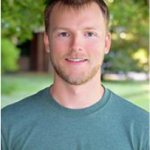 Kyle Rybacki is the Bureau of Land Management’s Cave & Karst Subject Matter Expert where he oversees program administration, training, and provides technical assistance to BLM field staff and foreign governments. Kyle enjoys helping others learn and grow, and utilizes inquiry-based learning supplemented by hands-on activities. Kyle has a BS and MS in Geology & Geophysics from the Missouri University of Science & Technology, formerly the University of Missouri – Rolla, and a dual-title Ph.D. in Geochemistry and Astrobiology from Penn State.
Kyle Rybacki is the Bureau of Land Management’s Cave & Karst Subject Matter Expert where he oversees program administration, training, and provides technical assistance to BLM field staff and foreign governments. Kyle enjoys helping others learn and grow, and utilizes inquiry-based learning supplemented by hands-on activities. Kyle has a BS and MS in Geology & Geophysics from the Missouri University of Science & Technology, formerly the University of Missouri – Rolla, and a dual-title Ph.D. in Geochemistry and Astrobiology from Penn State.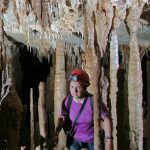 Pat Kambesis is Associate Director for Science and Exploration at the Center for Human GeoEnvironmental Studies at Western Kentucky University. She is an instructor for the Department of Earth, Environmental and Atmospheric Studies at WKU and is faculty for the WKU/Mammoth Cave National Park Karst Field Studies program where she teaches courses in cave and karst data collection, data management and visualization, and Geographical Information Science. She holds a BS in Biology from University of Illinois, a BS in Geology from Southern Illinois University, MS in Geoscience from WKU and a PhD in Earth and Atmospheric Sciences from Mississippi State University. She also is a registered GIS Professional (GISP).
Pat Kambesis is Associate Director for Science and Exploration at the Center for Human GeoEnvironmental Studies at Western Kentucky University. She is an instructor for the Department of Earth, Environmental and Atmospheric Studies at WKU and is faculty for the WKU/Mammoth Cave National Park Karst Field Studies program where she teaches courses in cave and karst data collection, data management and visualization, and Geographical Information Science. She holds a BS in Biology from University of Illinois, a BS in Geology from Southern Illinois University, MS in Geoscience from WKU and a PhD in Earth and Atmospheric Sciences from Mississippi State University. She also is a registered GIS Professional (GISP).
Subject Matter: Resource Inventory, data management and visualization
Skill Level: Non-technical specialist
Equipment (if applicable): Laptop for hands-on instruction
Outcomes: Participants will leave with an understanding of how to design and execute resource inventories of caves and karst features. Basics of data management and visualization of data will also be covered.
Maximum number of participants: 25
Date: Monday, November 1
Time: 8:00 AM – Noon
Location: Holiday Inn San Marcos — Convention Center
Workshop #3
Title: Cave Management Considerations for Bats
Description: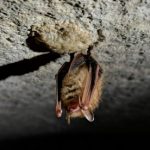 Bats have long been associated with cave habitats, but throughout history this association has not always benefitted these cryptic mammals. In fact, our cave-dwelling bat species have suffered some of the most catastrophic population declines. Fortunately, we now have a far better understanding of the complexities in underground environments and their importance to bats. We begin with a glimpse of the variety of underground environments and how to determine their suitability to different bat species at all stages of their life-cycles. Bat natural history and the history of cave exploration and human use is combined to highlight the important biological implications of cave study and protection. Case studies of cave conservation are presented which will illustrate many of the successful efforts to balance human and bat needs on the landscape.
Bats have long been associated with cave habitats, but throughout history this association has not always benefitted these cryptic mammals. In fact, our cave-dwelling bat species have suffered some of the most catastrophic population declines. Fortunately, we now have a far better understanding of the complexities in underground environments and their importance to bats. We begin with a glimpse of the variety of underground environments and how to determine their suitability to different bat species at all stages of their life-cycles. Bat natural history and the history of cave exploration and human use is combined to highlight the important biological implications of cave study and protection. Case studies of cave conservation are presented which will illustrate many of the successful efforts to balance human and bat needs on the landscape.
Instructors:
Merlin D. Tuttle, Merlin Tuttle’s Bat Conservation, http://www.merlintuttle.org Merlin started his bat career as a teenager, has done field research on every continent where bats live, photographed hundreds of species, founded and led Bat Conservation International for 30 years (retiring in 2009) and has been a key force in changing the way the world perceives bats. Merlin is comfortable crawling deep into caves, lugging equipment through tropical jungles, or standing on a stage introducing the world to the Secret Lives of Bats. Dr. Merlin Tuttle is currently the Founder and Executive Director, Merlin Tuttle’s Bat Conservation, in Austin, TX. Recognized worldwide as an accomplished advocate for bat conservation, Merlin began his bat-work with first-of-its-kind, groundbreaking research on the population dynamics of the Federally Endangered gray myotis, and went on to publish 57 research papers and a number of popular articles and books. He formed Bat Conservation International, which became an international success for critically important bat protection efforts. Along the way, Merlin honed his skills for photography, public speaking, and fund-raising and is now a recognized international leader in conservation circles across the globe. His photos have been published and exhibited worldwide including in at least five National Geographic articles. He has been an invited speaker at prestigious institutions including Harvard and Princeton Universities, the National Geographic Society, Smithsonian Institution, British Museum and advised on the most recent Vatican encyclical. Visit MerlinTuttle.com to see his photos, videos and to support his ongoing work.
Jim “Crash” Kennedy, Jim is owner of Kennedy Above/Under Ground, LLC specializing in cave and bat conservation and habitat management. He is one of the few expert cave and mine gate engineers in the United States, and won the US Forest Services “Wings Across the Americas” award in 2014 for a two-week project in Missouri. He worked as a Conservation Biologist at Bat Conservation International for 18 years, after working as a non-game wildlife technician for the Pennsylvania Game Commission. He has extensive experience with small-mammal trapping, artificial bat roosts, winter censuses, summer mist-netting and harp-trapping, cave and mine habitat assessments, bat gate design, karst management and protection, and educational outreach. He is currently Secretary of the Texas Speleological Survey, and organizes speleological expeditions in Texas and Mexico. Kennedy also coordinates the biennial National Cave and Karst Management Symposia. He has been in over 200 mines and 1500 caves in 9 countries, and has more than 12,000 hours underground experience, and is a Life Member and Fellow of the National Speleological Society.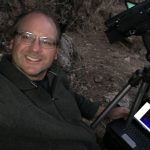 John Chenger, Bat Conservation and Management, www.batmanagement.com
John Chenger, Bat Conservation and Management, www.batmanagement.com
John has over 20 years of experience in the field of wildlife conservation and research. He is currently President of Bat Conservation and Management, Inc. (BCM), a company he formed in 1998 to supply wildlife agencies and the general public with remarkably successful artificial bat roosts. His company provides consulting services on numerous wildlife survey and mitigation projects, and produces custom field-gear for the survey and monitoring of bats and other wildlife. He has directed and participated in numerous projects including over 600 cave identifications, individual and regional cave and mine surveys, karst hydrology studies, summer woodland bat mist net surveys, and Allegheny woodrat surveys to determine presence, population size, and habitat use. He has conducted abandoned mine habitat assessments, fall harp trapping surveys for bats, echolocation call analysis, ground and aerial radio telemetry coordination, harp trap and artificial roost design, and bat-friendly gate design. Since 2004 he has been a recurring instructor at training workshops offered by Bat Conservation International, Bat Conservation and Management, and Bat Survey Solutions, offering a comprehensive curriculum designed to train serious students, consultants, and land managers in the current research and management techniques for the study of bats. He has served as a Sub-Region Coordinator within the National Cave Rescue Commission. He has previously designed and implemented six simultaneous public educational programs at the commercial cave Laurel Caverns (Farmington PA), in addition to overseeing the interpretive staff and publishing a book on the history, geology, and biology for this summer attraction. Before becoming involved with bat conservation, John was a professional studio and field photographer, skills that continue to be utilized to this day.
Skill Level: Any
Equipment (if applicable): None
Attire (if applicable): Casual/Comfortable Clothing
Outcomes: Identifying suitable caves for hibernation and maternity sites using internal and external surveys.
Maximum number of participants: 50
Date: Monday, November 1
Time: 1:00 PM – 5:00 PM
Location: Holiday Inn San Marcos — Convention Center
Workshop #4 Cancelled
Title: Developing Stewards: Cave and Karst Management through Accessible Education
Description: How do we develop future stewards of cave and karst resources? This workshop will explore the idea of management through the development of education programs that will build future stewards of cave and karst resources. Participants will further look at how to build an accessible program from its infancy to completion so that educational outreach is accessible to all audiences. This will be an interactive workshop mixing both small group discussions and whole-group activities to enable participants to freely discuss issues they are having as cave and karst managers and to develop solutions through discussion and reflection.
Instructors: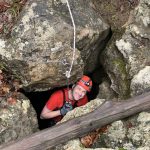 Brad Barker has been an avid caver since 2007, enjoying both horizontal and vertical cave exploration. Brad is currently serving as a member of the Education Division of the National Speleological Society to help further develop their educational outreach programs. He has a Masters of Teaching and Learning and is currently a K-12 educator working with Deaf/Hard-of-Hearing students in Northeast Georgia. Brad is currently in his eleventh year as an educator and has taught middle school English, social studies, and science, as well as high school science. Additionally, he has worked with students who are English language learners in grades K-8. During a sabbatical from teaching, Brad worked for the National Park Service as an Education Technician at Badlands National Park with a focus on educational outreach, managing educational grants for use with local tribal students, social media, and Section 508 compliance for accessibility. During this time, he completed the Foundations of Accessibility certificate program from Eppley Institute for Parks and Public Lands to further develop his knowledge and skills in creating accessible programs and content for all park visitors. The focus on accessible outreach and education are close to Brad’s heart because he has an adopted son who is deaf. When Brad began looking for ways to share his love of the outdoors with his son, he found that there was little content that was truly accessible.
Brad Barker has been an avid caver since 2007, enjoying both horizontal and vertical cave exploration. Brad is currently serving as a member of the Education Division of the National Speleological Society to help further develop their educational outreach programs. He has a Masters of Teaching and Learning and is currently a K-12 educator working with Deaf/Hard-of-Hearing students in Northeast Georgia. Brad is currently in his eleventh year as an educator and has taught middle school English, social studies, and science, as well as high school science. Additionally, he has worked with students who are English language learners in grades K-8. During a sabbatical from teaching, Brad worked for the National Park Service as an Education Technician at Badlands National Park with a focus on educational outreach, managing educational grants for use with local tribal students, social media, and Section 508 compliance for accessibility. During this time, he completed the Foundations of Accessibility certificate program from Eppley Institute for Parks and Public Lands to further develop his knowledge and skills in creating accessible programs and content for all park visitors. The focus on accessible outreach and education are close to Brad’s heart because he has an adopted son who is deaf. When Brad began looking for ways to share his love of the outdoors with his son, he found that there was little content that was truly accessible.
Brad has led workshops in the past with Legacy Environmental Education in Alabama bringing education on caves and karst to teachers so they could then return to the classroom better equipped to teach their students about these unique environments. While helping with these workshops, Brad focused on ways to demonstrate the importance of karst groundwater and human impacts in these environments. Brad also led trips underground for the participants to help them not just know of caves from literature and film but to experience these environments firsthand. As an educator, Brad values experiential learning and developing ideas through critical thinking.
Subject Matter: Stewardship, Educational Outreach, Accessibility
Skill Level: All Skill Levels
Equipment (if applicable): Note-taking equipment (pen/pencil or electronic device) and management plan for cave or karst resource (optional but beneficial). The instructor would appreciate participants sharing their management plan, if applicable, so the course can be further refined to best match the participants’ needs. Management plans can be emailed to .
Attire (if applicable): Casual/Comfortable Clothing
Outcomes/Learning Objectives:
• Understand the value of investing in youth and adult programming for educational outreach.
• Explore and practice various educational techniques and strategies for engaging an audience and improving understanding of cave and karst environments.
• Identify resources available for use in educational programming.
• Define accessibility and gain a better understanding of accessibility issues and how they apply to best practice.
• Reflect on current education outreach activities and evaluate their success.
• Best practices for accessibility for those with disabilities.
• Understanding of how to make content accessible to all audiences
• Understanding and identifying accessibility issues at managed cave or karst area and how to increase access/understanding to those with disabilities.
Maximum number of participants: 50 participantsDate: Monday, November 1Time: 1:00 PM – 5:00 PMLocation: Holiday Inn San Marcos — Convention Center
Workshop #5
Title: Cave and Karst Hydrology Workshop
Description: 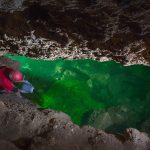 Karst terrains and underlying caves are part of the hydrologic cycle. Karst has many unique aspects that are commonly misunderstood by non-specialists. This workshop will discuss different conceptual models to better understand the karst hydrologic cycle from rainfall to sinkholes and caves to springs. Several tools will be discussed that are useful to help better understand and manage these unique environments including water quality monitoring parameters and frequency, water quality instrumentation, use of tracer (dye) testing to delineate spring sheds, and general discussion of geophysics in karst settings.
Karst terrains and underlying caves are part of the hydrologic cycle. Karst has many unique aspects that are commonly misunderstood by non-specialists. This workshop will discuss different conceptual models to better understand the karst hydrologic cycle from rainfall to sinkholes and caves to springs. Several tools will be discussed that are useful to help better understand and manage these unique environments including water quality monitoring parameters and frequency, water quality instrumentation, use of tracer (dye) testing to delineate spring sheds, and general discussion of geophysics in karst settings.
Instructors: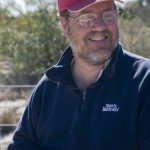 Geary M. Schindel, P.G.: President, National Speleological Society and Texas Professional Geologist with more than 40 years of experience as a karst hydrogeologist working on CERCLA, RCRA, and source water protection programs.
Geary M. Schindel, P.G.: President, National Speleological Society and Texas Professional Geologist with more than 40 years of experience as a karst hydrogeologist working on CERCLA, RCRA, and source water protection programs.
Dr. Mustafa Saribudak, P.G.: President of Environmental Geophysics based in Austin, Texas. He has more than 30 years of international experience in geophysics. Om the last 15 years, he has conducted more than 200 geophysical surveys for the environmental, engineering, and oil and gas industries and real estate developers.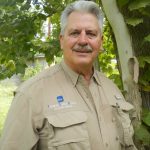 Alf Hawkins, P.G.: Associate with Environmental Geophysics for more than 28 years and has more than 40 years of experience working in the field of geology, airborne and marine geophysics. He has worked nationally and internationally in environmental, oil & gas, and mineral exploration areas.
Alf Hawkins, P.G.: Associate with Environmental Geophysics for more than 28 years and has more than 40 years of experience working in the field of geology, airborne and marine geophysics. He has worked nationally and internationally in environmental, oil & gas, and mineral exploration areas.
Subject Matter: Karst Hydrology, Cave and Karst Management, Tracer Testing, Water Quality Monitoring, Geophysics
Skill Level: This program is directed toward the land and cave resource managers with a basic understanding of earth sciences.
Equipment (if applicable): This is a classroom and lecture workshop. No special equipment is needed.
Attire (if applicable): No special attire is required.
Outcomes/Learning Objectives: Participants will come away with a better understanding of the hydrologic cycle and how it applies to the resources they manage. They will have an overview of the tools available to monitor water quality, relationship of surface activities to the subsurface, delineation of cave and spring sheds, and use of geophysics in the karst environment.
Maximum number of participants: 25 participants
Date: Monday, November 1
Time: 9:00 AM – 5:00 PM
Location: Holiday Inn San Marcos — Convention Center